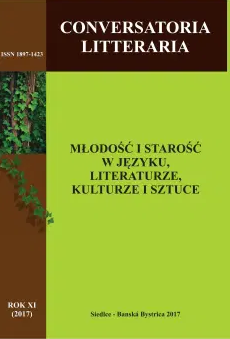МОЛОДОСТЬ И СТАРОСТЬ В СОВРЕМЕННОЙ РУССКОЙ ЛИТЕРАТУРЕ
Słowa kluczowe:
Aksyonov, propaganda, newspeak, old woman, island, transformation, grandchild, orchardAbstrakt
Exemplified by the selected prose of Russian writers of 20th and 21th centuries, the author analyses the issue of youthfulness and old age, commencing with the so-cold youth prose (V. Aksyonov, A. Kuznetsov, A. Gladilin) and rural prose (V. Raspu-tin, V. Astafyev). The issue also captures the interest of contemporary writers, including A. Yermakova, I. Mamaeva and Z. Prilepin. In their prose, protagonists, who belong both to the young and old generation, find it difficult to adjust to the reality after the Soviet Union collapse, which aggravates social contrast and eliminates those weak and helpless. Elderly people are most frequently made to live alone, struggling with their financial situation. The young generation, uneducated and unassertive, also find it difficult to live their life in dignity. Based on the analyses carried out, the author comes to the conclusion that it is impossible to create an unambiguous image of relation between the young and old generation since these relations are dependent not on social-political transformations, but on the human’s axiological system.




